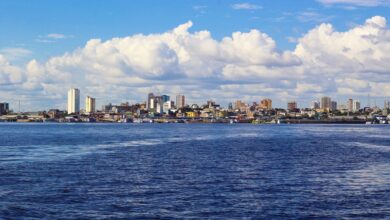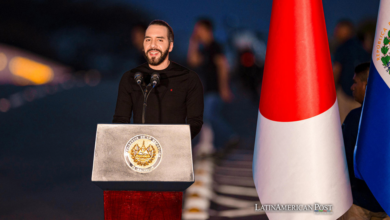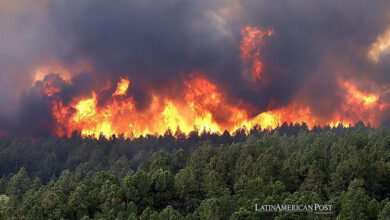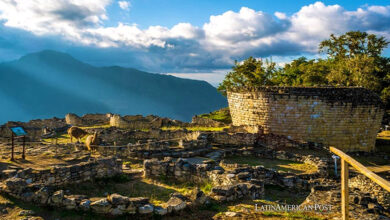Who is David Attenborough? The Newest “Champion of Earth”
On April 21, 2022, the United Nations awarded the “Champions of the Earth” award, in the life trajectory category, to British naturalist and documentary filmmaker Sir David Attenborough. This is the highest recognition that organizations, communities and individuals can receive for their contributions and impact on environmental issues.

Photo: dfat.gov.au
LatinAmerican Post | Daniel Vergara García
Escucha este artículo
Leer en español: ¿Quién es David Attenborough y por qué ha recibido el máximo galardón ambiental de la ONU?
Attenborough, 95, has worked for more than 7 decades as a broadcaster, natural historian, researcher and documentary filmmaker. This has allowed him to be recognized as one of the most influential people and a benchmark on environmental issues around the world. He was born on May 8, 1926 in Isleworth, very close to London; During his childhood he always dedicated part of his time to exploring quarries and showed interest in collecting fossils and objects related to nature.
He is the second of three brothers who have also had successful careers. The oldest was Richard Attenborough, a renowned actor and director who won an Oscar in 1982 for best director for the film Gandhi. His younger brother was John Attenborough, who became CEO of the Italian car brand Alfa Romeo.
David studied natural sciences at Cambridge University. After graduating in the early 1950s, he applied for a job with the BBC as a radio producer. According to a biography by National Geographic magazine, although his application was rejected, the chain's head of production saw his potential and supported Attenborough with some of his productions. This led to the broadcast of Zoo Quest, a series of BBC documentaries in 1954 in which the naturalist and his expedition team embarked on a search for animals around the world.
Although various television programs were broadcast in the 1950s and 1960s, according to a profile made by the BBC in 2020, his career as a producer, presenter and researcher was consecrated in 1979 with the series Life On Earth. During the 13 episodes of this program, a tour was made showing various species of animals that until now were unknown to a large part of the population, and ecosystems that had not been explored until now.
This production became one of the most revolutionary in the ecological field for that time. In 1984 the second part of this series called The Living Planet was made and later in 1990 this trilogy would culminate with The Trials of Life.
In the first decade of the 2000s, his productions turned towards a specific objective. Although in his previous works he would have dedicated himself to giving visibility to nature, its species and certain human communities, by the beginning of the new century, awareness of the emergency and current climate crisis has become a fundamental theme of his new documentaries.
We recommend you read: Gallery: Emblematic animals of Latin America
In "David Attenborough: A Life on Our Planet" One of his most recent productions (2020), he shares his deep concern about the impact of humanity on planet earth, in this documentary he calls attention to international cooperation and the immediate need to change the extractivist paradigm with which the environment is seen, taking into account the current climate crisis.
Some Sir David Attenborough productions recommended by the IMBD portal are:
- Life on Earth (TV series) (1979)
- Life in the Frieza (1993)
- Life in Cold Blood (2008)
- Planet Earth (TV series) (2006)
- Frozen Planet (2011)
- David Attenborough: A Life on Our Planet (2020)
- The Earthshot Prize: Repairing Our Planet (2021)
A champion of the land
The Champions of Earth Award was created in 2005 by the United Nations Environment Program (UNEP), or UNEP for its acronym in English, to recognize the actions that multiple communities and individuals carry out daily at an ecological and environmental level. In a press release from the United Nations, Iger Andersen, executive director of UNEP, stated that: "Sir David Attenborough has dedicated his life to documenting the love story between human beings and nature, and transmitting it to the world. If we have an opportunity to prevent the collapse of climate and biodiversity, and to restore polluted ecosystems, is because millions of people fell in love with the planet he showed us on television.
The recognition of the multiple actions and socio-environmental processes carried out by various people is pertinent to the current situation. The media not only makes visible the green key transformations that are taking place around the world but also gives them legitimacy in the context of the climate crisis that the international community has to face at the moment.




